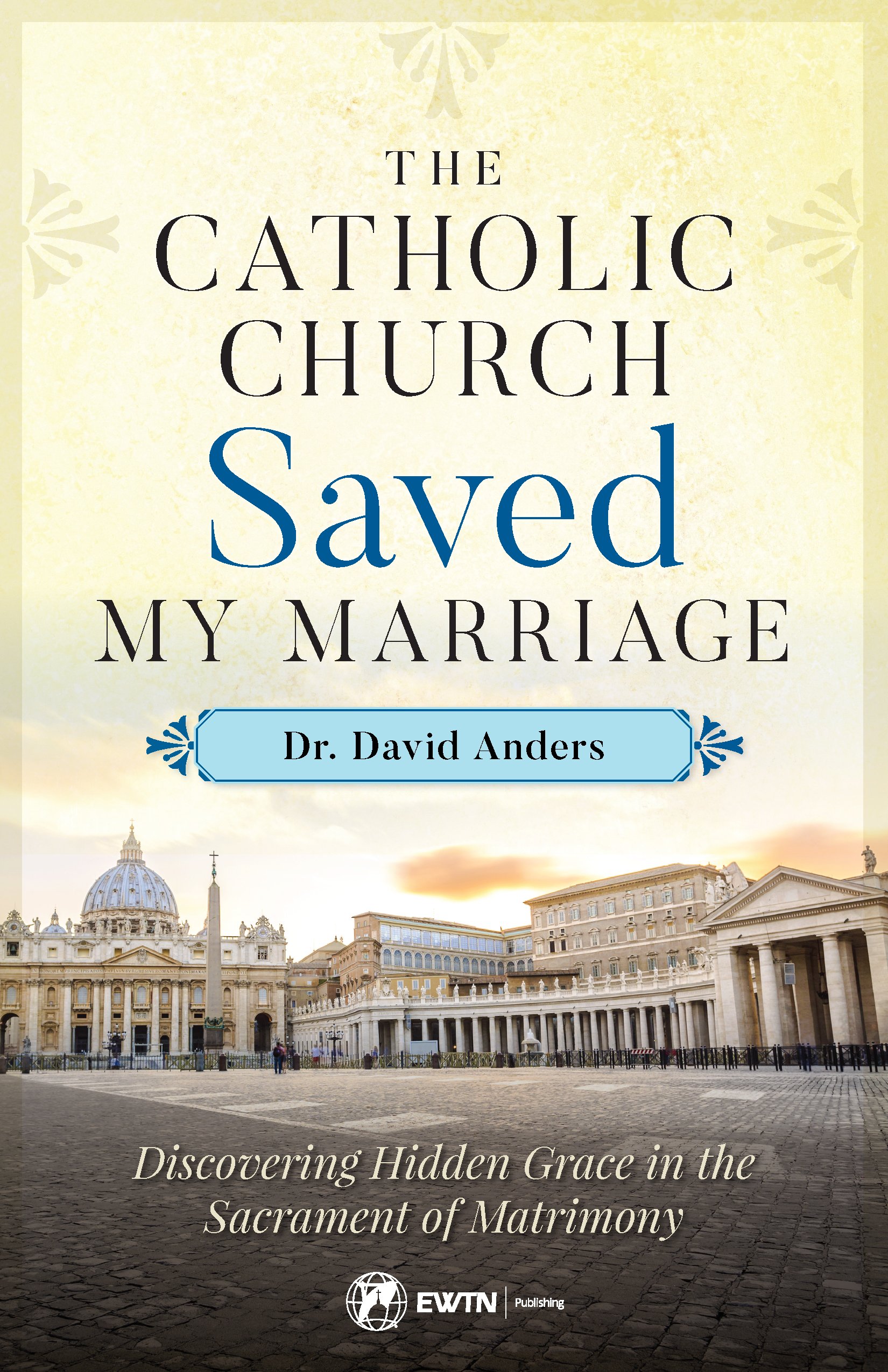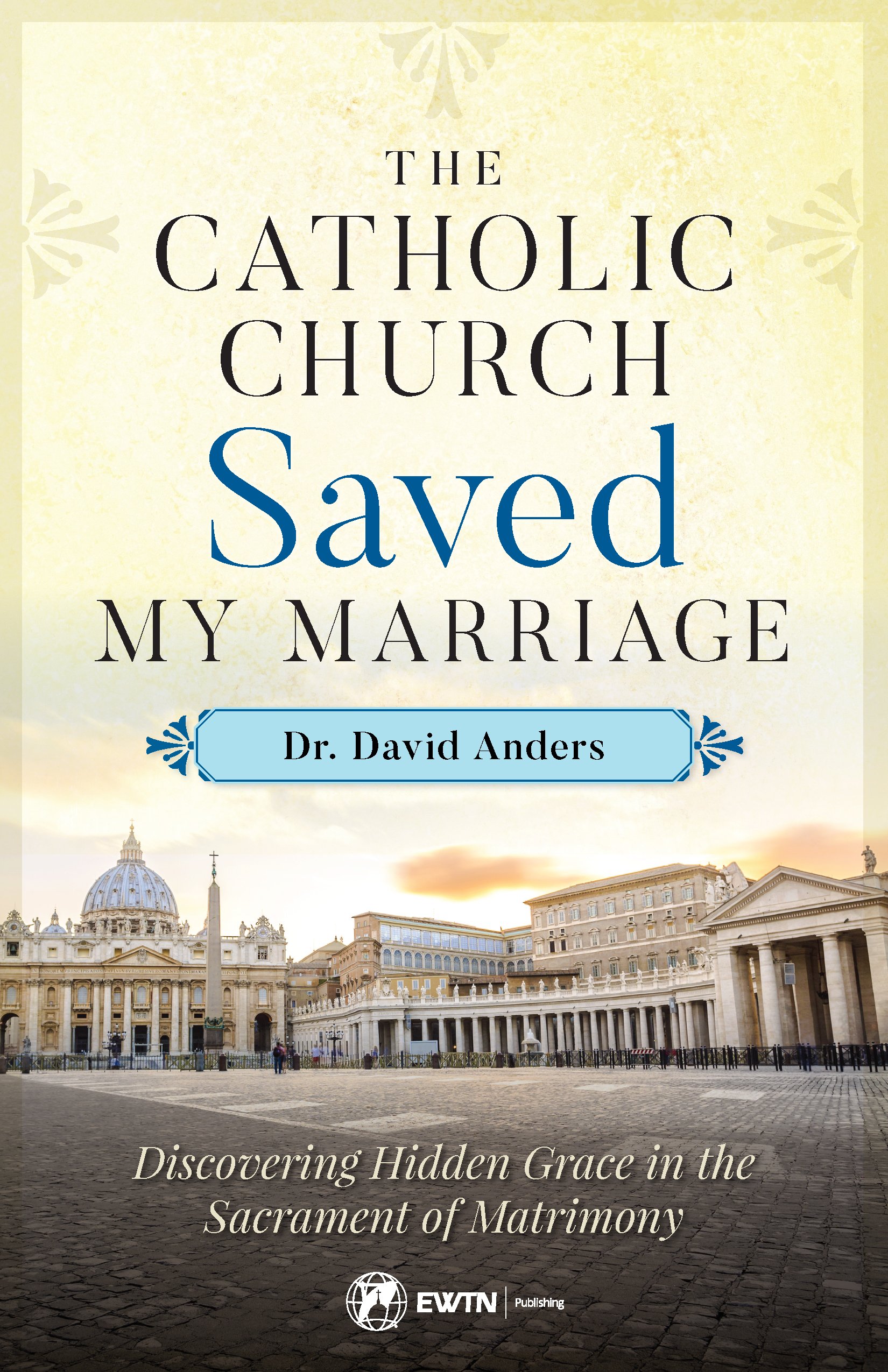Sundays as a Baptist
Before explaining my profound discovery of the liturgy and sacraments of the Catholic Church, I must first to take a step back in time to my delightful Baptist childhood.
Before I ever read the Bible for myself, I was well aware of my Baptist tradition, which permeated every aspect of my childhood and teen years. I was reminded constantly that Baptists reject many of the teachings of the Catholic Church. We rejected infant baptism and taught that anyone baptized as an infant had to be baptized again, or re-baptized as an adult—and this by full immersion.
We also rejected the Real Presence of Christ in the Eucharist and that there was any sacrifice involved. This was Catholic heresy that originated in the “traditions of men.” We did not use the words Mass or Eucharist. For us, the correct terminology was the Lord’s Supper or communion. Since Jesus was crucified once and for all on the cross, there is no way that the Lord’s Supper could have anything to do with the sacrifice of Christ. It actually did nothing, and changed nothing. It was simply a meal we shared to commune spiritually with our Lord and to remember what he did for us on the cross.
The door of our Baptist church opened, and the early arrivers stepped in with well-worn Bibles under their arms. (I still have my dad’s marked up and notated King James Schofield Reference Bible on my desk. The date in the cover reminds me of his conversion from pagan to Christian in 1954, the year I was born.) Boys with cute bow ties and girls in frilly dresses were dropped off at Sunday school. Women adjusted their hats and smiled at their friends.
It was always the same: We entered the church with chattering friendliness accompanied by the organ or piano. Everyone took their place in the padded pews. The pastor stepped up to the front and welcomed everyone, especially any visitors. Then we all stood as he opened with a solemn and often lengthy prayer. A number was called out, and we all grabbed our hymnal and proved we were real Christians by belting out the hymn—and not just the first verse, but every verse.
Then came announcements, the doxology, and the collection while a soloist sang. I remember at one church they even passed a credit card machine up and down the pews.
Then we were enriched by nearly an hour of preaching with the exercise of flipping from one end of the Bible to the other. I don’t recall us ever reading any lengthy selection of Scripture in context. It was usually a thematic study, using verses out of context from one passage then another.
It usually concluded with an altar call—a passionate, heartfelt appeal to come forward to receive Jesus as your personal Lord and Savior. I always wondered about this, since I assumed everyone there had already done that at least once, if not many times. No one ever came forward except in the yearly revivals, when flocks came forward just to make sure. Then came the closing prayer and another complete hymn followed by a reminder of the Sunday service at 7:00 p.m.
It never dawned on me (and probably not on any other person sitting in the pews) to ask what the very first Christians did on Sunday mornings. After all, Christians have been gathering on Sundays for more than 2,000 years. Jesus and the apostles set something in motion, and their immediate disciples followed them in their manner of worship on Sundays.
They certainly had a structure to their “worship service,” as is clear from the New Testament and the writings from the first and second century. The apostles certainly taught them what to do and how to do it, if only by their example.
The Lord’s Supper
In my Baptist congregation (and later in other churches we attended, such as Reformed, non-denominational, Methodist, Calvary Chapel, Presbyterian, New Testament Assembly, Plymouth Brethren, etc.) we had the “Lord’s Supper.” Once every three months or so it was tacked on to the end of a regular church service.
Broken crackers were distributed on a silver tray, followed by the grape juice in individual mini-glasses (like shot glasses used for whiskey). We were clear that nothing happened to the crackers and grape juice during the ceremony. Only the heretic Catholics believed that unseen magic took place. The crackers and grape juice were mere symbols to remind us of the body of Jesus that was nailed to the cross and the blood that resulted from the nails.
Jesus had ordered us to do this, so we obeyed, calling it not a sacrament but an ordinance. The ceremony did nothing but remind us of the crucifixion. It was simply a “meal”—meager as it was—to remind us of our Lord’s death. We were always anxious to get out of church and to our real meal at the diner on the way home.
Jesus said, “As often as you do this”—but in our Baptist church, this was interpreted as, “As infrequently as you do this.” No one seemed concerned that the apostles and the early Christians celebrated this ceremony often and that it was more than just sharing crackers and grape juice. St. Luke informed us that the very first Christians “devoted themselves to the apostles’ teaching and fellowship, to the breaking of bread and the prayers” (Acts 2:42).
The apostles and their disciples met frequently to “break bread,” which was the earliest term for the Eucharist or the Lord’s Supper. This was shared no less than weekly (cf. Luke 24:30; Acts 2:46, 20:7). The daily bread of the Israelites in the wilderness of Sinai was called manna. The manna prefigured the Eucharist, and we are taught likewise to pray for the Father to provide us with our “daily bread,” which certainly refers to the Eucharist as well as our daily provisions.
Beyond the book of Acts and St. Paul’s epistles, do we have any idea what the apostles did on Sunday mornings when they gathered together? Did the early Christians leave a record of what they did on Sunday? Was it similar to the typical Baptist church service?
A historical record
We are fortunate. The early Christians did leave us a record of what they did, as taught by the apostles. It would serve us well to read their testimonies.
Why? Well, who can provide us with the best and most accurate idea of what the apostles taught, practiced, and expected the Church to do on Sundays than those who actually learned it from the apostles?
There is an old axiom that tells us the water is always cooler and clearer the closer you get to the source.
Justin Martyr (c. A.D. 100-165) was a pagan philosopher who converted to Christianity. He became a celebrated defender of the Christian faith and was beheaded as a martyr in Rome in A.D. 165. This was only 65 years after the death of the Apostle St. John in Ephesus.
St. Justin wrote to Emperor Marcus Aurelius, who was a persecutor of the Christians. He tried to explain to the emperor what the Christians believed and practiced. Maybe, he reasoned, if the Emperor understood Christianity he would stop killing the Christians.
It would do well for modern Protestants to look beyond their own relatively recent traditions to see what the first Christians did on Sunday morning.
Justin Martyr’s voice can still be heard ringing clearly down through the centuries, for our ears:
“And on the day called Sunday, all who live in cities or in the country gather together to one place, and the memoirs of the apostles or the writings of the prophets are read, as long as time permits; then, when the reader has ceased, the president verbally instructs, and exhorts to the imitation of these good things.
Then we all rise together and pray, and, as we before said, when our prayer is ended, bread and wine and water are brought, and the president in like manner offers prayers and thanksgivings, according to his ability, and the people assent, saying Amen; and there is a distribution to each, and a participation of that over which thanks have been given, and to those who are absent a portion is sent by the deacons (quoted in The Ante-Nicene Fathers, Vol. 1; Roberts, Donaldson, and Coxe, eds., p. 186).”
This is the earliest description we have of the Sunday morning worship service, as Protestants usually refer to it. Catholics refer to it as the Mass, or the Eucharistic liturgy.
Notice first of all that Christians gathered on Sunday mornings. This was something that was expected and even required. They gathered! Second, they all gathered in one place. Today, in Anytown, USA, Sunday morning is the most segregated time of the week. Christians do not gather in one place but in multiple, sometimes competing, locations—Baptists, Lutherans, Pentecostals, Nazarenes, Methodists, Presbyterians, so-called non-denominational denominations, and a host of others.
An ancient form
In the early centuries Sunday morning began with reading lengthy selections of Scripture, including the Old Testament and the developing New Testament (though the final collection was not codified for another two hundred years or so). They read the Gospels—the words of our Lord.
The readings were extensive and in context. Afterward, the presider or the priest would exhort the Christians to follow and imitate what Scripture taught. Then they stood together and prayed, usually ending with “Lord, hear our prayer,” just as we offer our petitions to God in the Catholic Church today.
After the homily and prayers of the faithful, “bread and wine and water [were] brought” to the front of the church. The priest then “offer[ed] prayers and thanksgivings, according to his ability, and the people assent[ed], saying, ‘Amen.’”
This is exactly what happens in every Catholic Church in the world today, 2,000 years later. After the Eucharistic prayers the people say “Amen” and arise to receive the Body and Blood of Christ. Then the deacons take the Eucharist to those who were absent. A collection is taken to help the poor and to help support the Christian community.
Is this the Catholic liturgy or the Baptist service? St. Justin Martyr’s voice pierced the noise of modern religious confusion and reached my ears with a clear and clarion call: “Steve, wake up—open your eyes, abandon sectarian novelties and man-made traditions and listen to us who followed the actual teachings and practices of the apostles. We are still living and teaching and preserving what we learned from the apostolic Fathers. Their words are still ringing in our ears, their liturgy still vivid before our eyes.”
Justin Martyr again:
“And this food is called among us Εὐχαριστία [the Eucharist], of which no one is allowed to partake but the man who believes that the things which we teach are true, and who has been washed with the washing that is for the remission of sins [water baptism], and unto regeneration, and who is so living as Christ has enjoined.
For not as common bread and common drink do we receive these; but in like manner as Jesus Christ our Savior, having been made flesh by the word of God, had both flesh and blood for our salvation, so likewise have we been taught that the food which is blessed by the prayer of His word, and from which our blood and flesh by transmutation are nourished, is the flesh and blood of that Jesus who was made flesh. For the apostles, in the memoirs composed by them, which are called Gospels, have thus delivered unto us what was enjoined upon them; that Jesus took bread, and when He had given thanks, said, “This do ye in remembrance of Me, this is My body” (quoted in The Ante-Nicene Fathers, Vol. 1, p. 185).”
So, what did the earliest Christians do on Sunday morning? The same thing Catholics do today.
Time machine experiment
I’ve always wanted to perform an experiment. I want to invent a time machine and drop a first-century Christian into a modern Baptist church on Sunday morning. Would he know where he was, or what is going on?
No, he would not. It would be foreign to him.
Next, I would like to take that same apostolic Christian and set him down in a modern-day Catholic Church. Then would he know where he is and what is going on?
Yes, because it is precisely what he was doing in the first or second century—every Sunday for his whole life since his conversion from paganism.
Except for the cultural differences—language, style of dress, type of instruments accompanying the songs, architecture—the “blueprint” and structure of the liturgy, as well as the teaching and belief in the Eucharistic mystery, are the same.
Where did my former Baptist tradition come from? Not from the Bible or the early Church. It came from man-made traditions begun by Martin Luther and a host of other schismatics. The Baptist tradition is usually traced to English Separatist John Smyth in 1609 who in Amsterdam, after his own novel interpretation of the New Testament, decided that infant baptism was invalid and that only believing adults could be baptized. After baptizing himself, he baptized others of his new sect.
But back to this past Sunday. I again sat at church with tears in my eyes. It has been seventeen years since my family and I converted to the Catholic Church. Yet I still am amazed, enchanted, overjoyed, overwhelmed, and profoundly grateful.
We are proud of the Catholic Church for keeping the blueprint and living in obedience to our Lord and his apostles. I sat and listened to more Scripture read, sung, and prayed than I had ever experienced in any hour in a Baptist church. I ate the Body and drank the Blood of our Lord. I am still transported.
Heavenly continuity
My wife, Janet, and I sat in Mass this weekend again swept away by the beauty of the liturgy—not because the music was soaring or the homily profound but because it was the same Sunday morning worship that was given to the Church by Jesus and his apostles, and it has been celebrated uninterrupted for the last 2,000 years. It was the same liturgy loved by Justin Martyr, Ignatius of Antioch, Clement of Rome, Peter and Paul, Andrew, James . . .
The Catholic Church is ancient, yet ever young. We partake of the same Body and Blood of Jesus as did the first Christians. We are one body in Christ not only across the surface of the earth but throughout all of time. The Mass is timeless, vital, essential. It is life and light for those who have eyes to see and ears to hear.
As St. Ignatius of Antioch, another first century Christian wrote—not of himself but as a disciple of the apostles, with their words still ringing in his ears—“Obey the bishop and the presbytery with an undivided mind, breaking one and the same bread, which is the medicine of immortality, and the antidote to prevent us from dying, but [which causes] that we should live forever in Jesus Christ” (quoted in The Ante-Nicene Fathers, Vol. 1, p. 57).
The first Christians lovingly reached through two millennia and gave me the sign of peace saying, “Welcome home!”
I am proud and happy to be a Catholic.”
“Take note of those who hold heterodox opinions on the grace of Jesus Christ which has come to us, and see how contrary their opinions are to the mind of God. . . . They abstain from the Eucharist and from prayer because they do not confess that the Eucharist is the flesh of our Savior Jesus Christ. . . . They who deny the gift of God are perishing in their disputes.” –St Ignatius of Antioch (Letter to the Smyrnaeans 6:2-7:1 [A.D. 110]).
“We call this food Eucharist. . . . For not as common bread nor common drink do we receive these; but since Jesus Christ our Savior was made incarnate by the word of God and had both flesh and blood for our salvation, so too, as we have been taught, the food which has been made into the Eucharist by the eucharistic prayer set down by him, and by the change of which our blood and flesh is nurtured, is both the flesh and the blood of that incarnated Jesus.” –St Justin Maryr (First Apology 66 [A.D. 151]).














